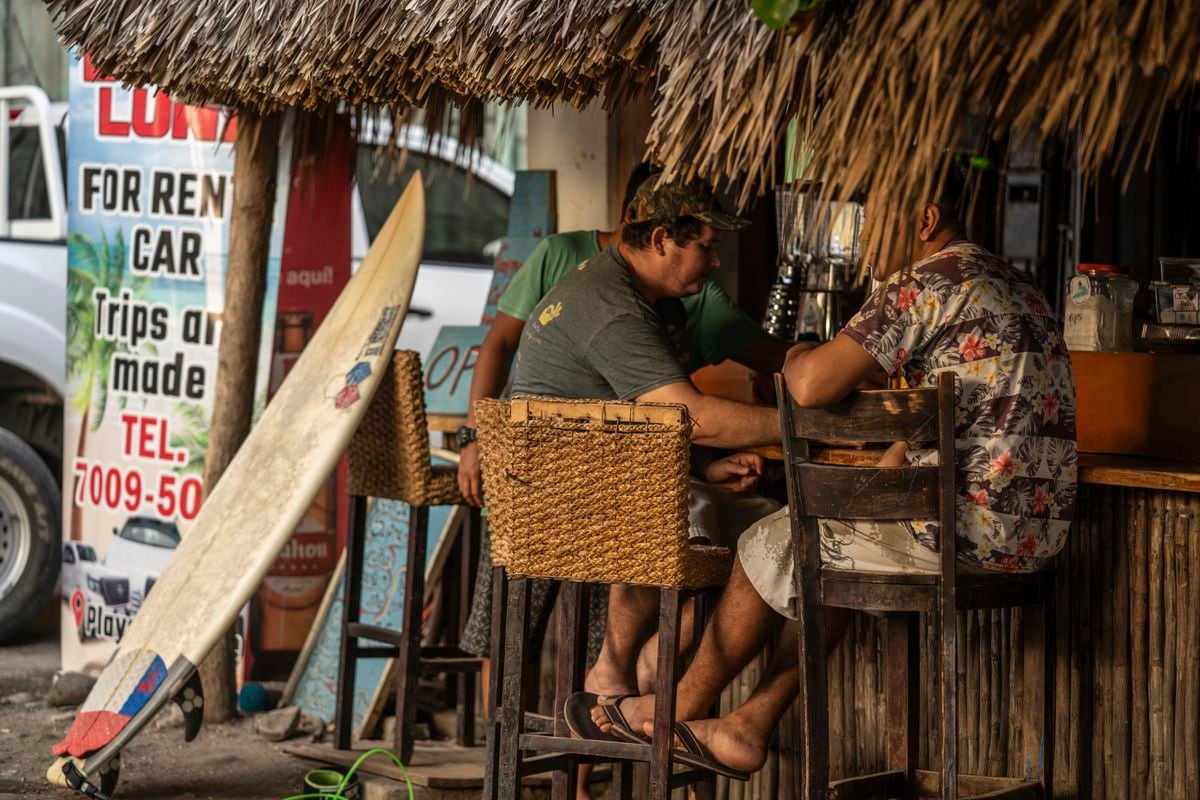Nayib Bukele, on some occasions, must be interpreted in the manner of the kings or popes of Rome.
Through signs, loose statements, insinuations, material posted on social networks and sporadic words from the people around him.
He has not developed an electoral program for these presidential elections nor has he campaigned in the country's cities that would help to understand what his objectives are in the next five years.
He considers them to be outdated methods, of old politics.
Instead, he uses his phone and a group of Latin American and Spanish YouTubers to launch his messages.
It is evident that the security policy that has made him immensely popular inside and outside El Salvador will continue to be his spearhead, but the country also demands new policies that help reduce poverty and the low income of workers.
Having overcome a serious problem, that of violence, the time seems to have come to use all that immense power that he has brought together as the sole leader of El Salvador to solve structural problems.
“When one reviews all the economic dynamics from four years ago, they are the same or worse: low foreign investment, low economic growth, a deficit trade balance.
We depend more on purchases from abroad than on what is produced here.
The challenge now is to focus on that area.
“This requires a refinement in terms of knowledge of public and economic policies that this Government has not shown so far,” explains independent Salvadoran economist Tatiana Marroquín.
The external debt has reached its historical maximum, 80.9%, according to the Government itself.
And a figure that is even more revealing: about 25% of the budget has to be allocated to pay for it.
The World Bank considers that problems continue to exist, such as the need to promote reforms to achieve fiscal sustainability.
The Government faces liquidity pressures, the agency cites, but agrees that the country can continue to prioritize increasing investments in human capital and strengthening the social protection system.
It concludes that the conditions exist to promote dynamic and inclusive growth.
A newspaper seller offers the newspapers that recount Bukele's victory, on February 5 in San Salvador. Gladys Serrano
Bukele had Alejandro Zelaya, former Minister of Finance, who led the Central American Bank for Economic Integration (CABEI) since July of last year, as head of the economy.
In her place, María Luisa Hayem, Minister of Economy, took control, about whom few things are found in the archive.
Her public appearances are very sporadic.
The ultimate core of the Government's decision-making is not easy to unravel.
It is known that he is accompanied by his brothers Karim, Ibrahim and Yusef, all children of Armando Bukele, a very charismatic Palestinian businessman who left a very deep mark on all of his children.
Bukele has said that his father was nominated for the Nobel Prize, something that is not true, but which demonstrates the type of consideration he had for his father, now deceased.
Ernesto Sanabria, the Secretary of the Presidency, is another of the closest officials.
However, as published by the digital media El Faro, the most relevant media outlet in El Salvador, it is his Venezuelan advisors who have been in charge of "the economic interventions", such as the distribution of food boxes among the population. .
These Venezuelan advisors, very discreet, almost in the shadows, come from the circles of the opponents Leopoldo López and Juan Guaidó.
There are those who consider that these make up a kind of parallel government that influences Bukele even more than some of his ministers, a story similar to that of the Cuban agents who were in charge of structuring the government of Hugo Chávez and later that of Nicolás Maduro. .
In any case, the internal mechanisms have not been made transparent and it is difficult to accurately evaluate the balance of forces.
However, it is known for sure that Bukele is and has tried to promote tourism.
El Salvador has paradisiacal beaches, less saturated than those of other places such as Colombia or Mexico, where new developments are planned.
In El Zonte, just half an hour from San Salvador, dozens of surfers take to the sea every day in search of waves.
Canadian and American tourists who stay in boutique hotels predominate.
The World Tourism Barometer (BTM) estimated that the number of foreign visitors grew by 32% last year.
The intense promotion of the country through these foreign influencers and through the president himself on the most active social networks has had a clear impact.
El Salvador is sold as a country, which it is today.
On some of these beaches, bitcoin is used, the virtual currency that Bukele promoted, but which has not fully caught on.
A Bitcoin mining tool store, in El Zonte (El Salvador). Gladys Serrano
Government investigators and auditors complain that they have had problems auditing state accounts.
The Bukele Government has promoted opacity.
“I'm waiting,” agrees Marroquín, and adds: “I wonder if the president would be willing to give up transparency and oversight in exchange for a financial lifeline for the next four years, such as an agreement with the International Monetary Fund (IMF). )”.
The question remains in the air.
In two years, Bukele has resolved the country's violence problems with an emergency regime that has violated human rights, according to investigations by international organizations.
That regime will continue, there is no doubt about that, but Bukele is expected to delve fully into the nation's underlying problems, such as the economy.
The president, who has just been re-elected for another five years, faces new problems on the horizon.
Follow all the information from El PAÍS América on
and
X
, or in our
weekly newsletter
.

